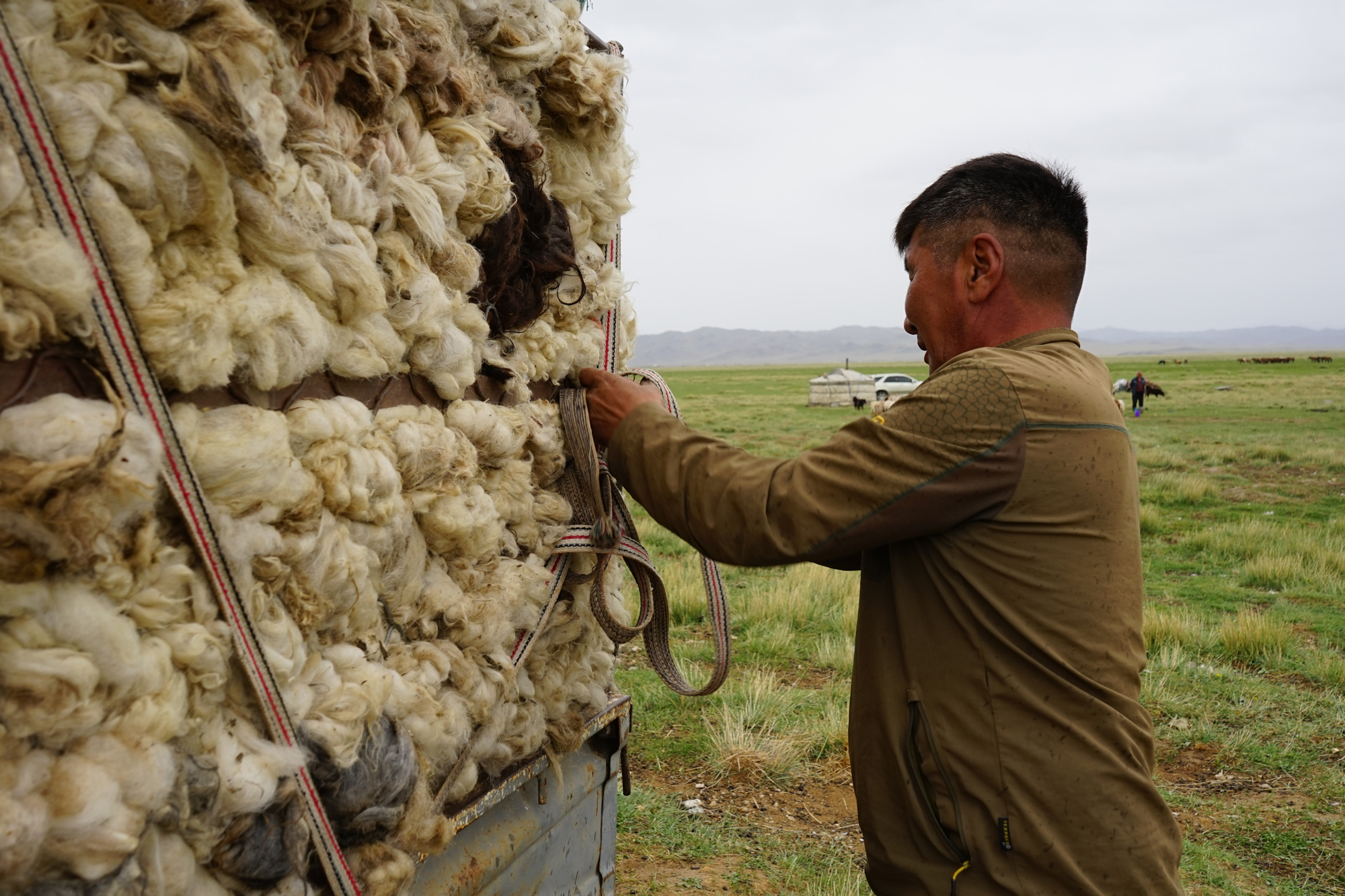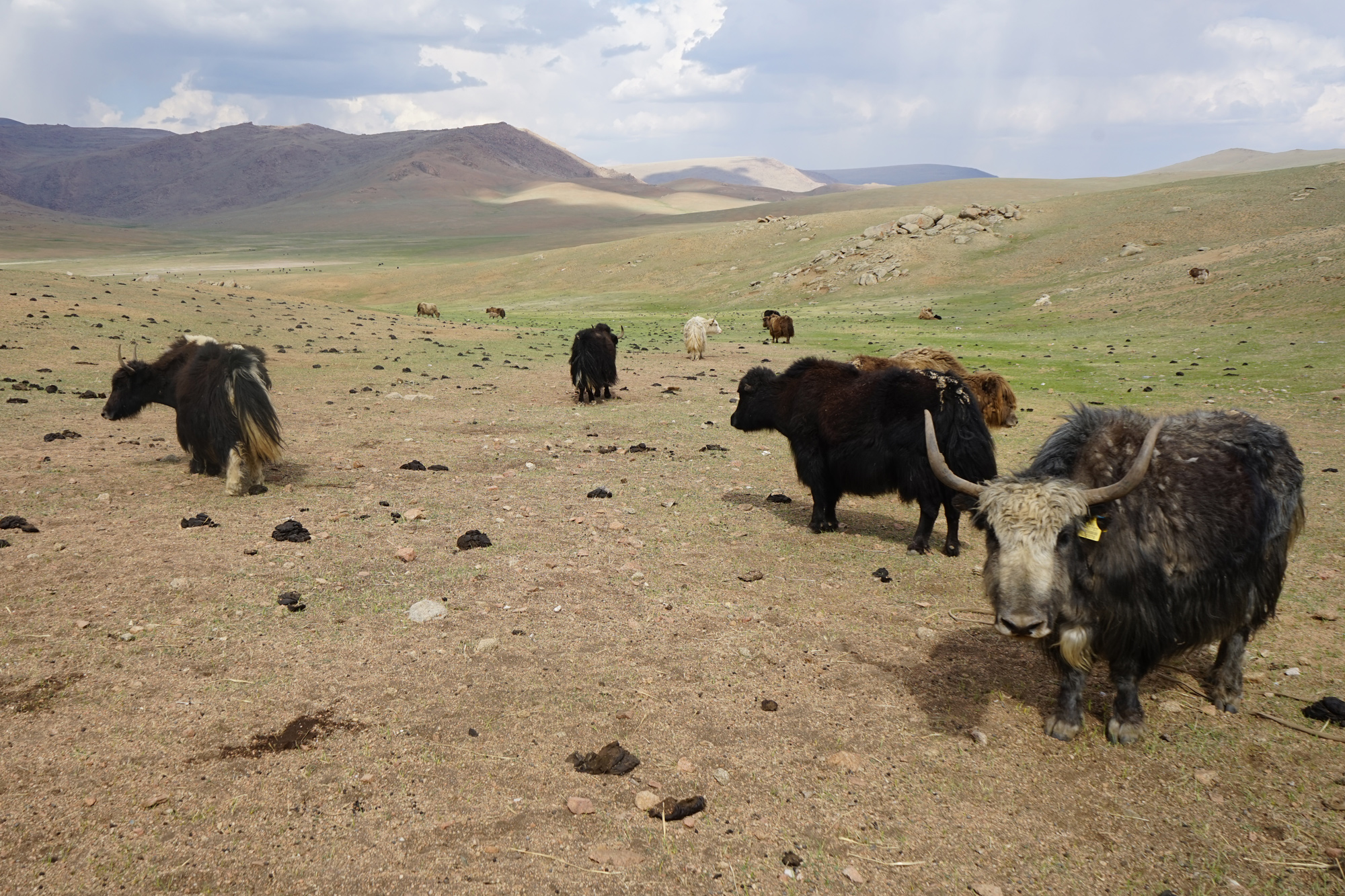Who we are
The Commission on Nomadic Peoples is part of the International Union of Anthropological and Ethnological Sciences (IUAES). This commission is one of a number of academic working groups of the Union which collaborates with a broad, international range of researchers on nomadic peoples. The Commission has always aspired to be inclusive – drawing in as many interested parties as possible – researchers, practitioners, government and non-government officials, and crossing language and cultural divides.

Collecting wool from herder households in Bayanhongor province, Mongolia. July 2023. Photo by Ariell Ahearn.

Yaks grazing in Northern Bayanhongor province, Mongolia. June 2023. Photo by Ariell Ahearn.
Nomadic Peoples Journal
Nomadic Peoples is an international journal published by the White Horse Press for the Commission on Nomadic Peoples. Its primary concerns are the current circumstances of all nomadic peoples around the world and their prospects. Its readership includes all those interested in nomadic peoples – scholars, researchers, planners, and project administrators.
History
The Commission on Nomadic Peoples was established in 1977 through the initiative of Philip Salzman, who served as the Chair along with John Galaty until 1993. The first formal meeting took place in London with funding from the Ford Foundation. It was agreed at the time that the Commission should register at the IUAES and hold a board meeting every five years at the IUAES World Congress.
In the first years of the Commission, Salzman sent out a newsletter called the Bulletin, which eventually became the Journal of Nomadic Peoples. At first, the journal was published from Salzman’s office at McGill University, where he would print and send copies to academics in Africa, Asia and the USSR. Michael Casimir and Aparna Rao were elected as Co-Chairs of the Commission in 1994, following the short tenure of Anders Hjort. They set out to increase cooperation with international, national and regional organisations working to improve the status of nomadic peoples and conduct collaborative, interdisciplinary research.
In 1998, Dawn Chatty was elected as the Chair of the Commission at the IUAES Congress in Williamsburg and held the position for 15 years. Chatty continued to develop the profile of the journal of Nomadic Peoples through an award from the Ford Foundation, which supported three special issues by local scholars based in China, India and East Africa. Also, under Chatty’s leadership, the Dana Declaration on Mobile Peoples and Conservation was initiated during a meeting in Wadi Dana, Jordan. Eliot Fratkin was elected Chair of the Commission during the World Congress in Manchester in 2013 and the inaugural prize for the Best Student Essay was awarded.
In 2014, the journal of Nomadic Peoples changed publishers from Berghahn to the White Horse Press with Saverio Kratli as editor. The Commission and the journal continued to flourish and grow, leading it to receive a Journal Impact Factor from Clarivate in 2022. Ariell Ahearn was elected as Chair of the Commission in 2018 and has helped to establish the Oxford International Desert Conference as an important venue for members of the Commission to meet and present papers. The Commission of Nomadic Peoples remains one of the most active at the IUAES Intra and World Congresses.
Lifetime Achievement Awards
Chair’s Reports
Philip Carl Salzman, Chair from 1978-1993
Michael Casimir and Aparna Rao, Co-Chairs from 1994-1998
Dawn Chatty, Chair from 1999-2013
Elliot Fratkin, Chair from 2014-2018
Student Prize
The Commission holds an annual student essay competition. The winner receives £250 and open access publication of their essay in the journal of Nomadic Peoples.
Cecilia Conte
2024 Best Student Essay Prize
Patrick Hegarty-Morrish
2023 Best Student Essay Prize
Dr. Palden Tsering
2022 Best Student Essay Prize
Dr. Fred Wojnarowski
2020 Best Student Essay Prize
Dr. Greta Semplici
2019 Best Student Essay Prize
Dr. Ariell Ahearn
2018 Best Student Essay Prize